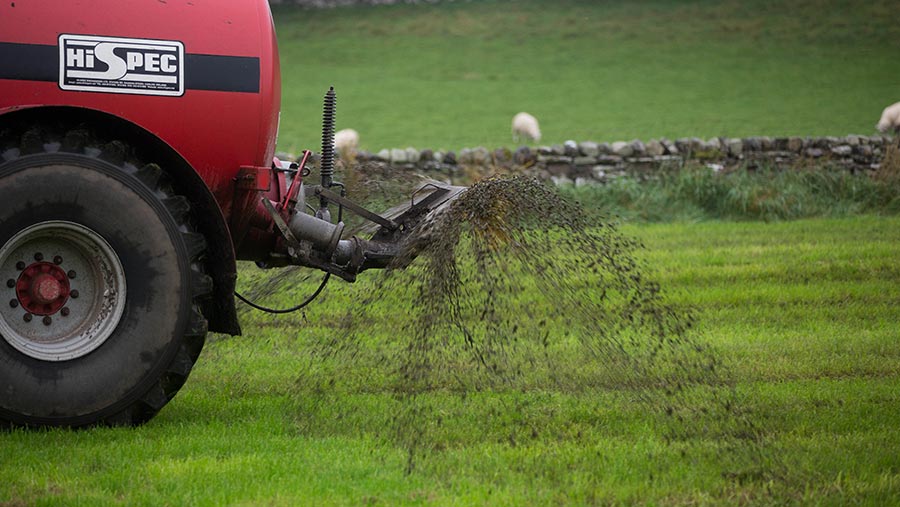NI cross-compliance date prompts slurry warning
 © Tim Scrivener
© Tim Scrivener The Ulster Farmers’ Union (UFU) has warned farmers to be aware of poor ground conditions ahead of slurry spreading despite a key calendar date which gives the green light for application to start.
The official open period for spreading slurry begins on Monday 1 February in Northern Ireland, but prolonged periods of rain and snow this year have left fields saturated.
Although there is a need to get on with fieldwork after a long winter, the UFU said farmers also needed to be extra cautious.
See also: Guide to key cross-compliance dates for UK regions 2021
Spreading operations should be carried out only if local ground conditions were suitable, a union spokesman said.
To protect the environment and avoid potential penalties on payments, farmers needed to ensure they were abiding by all guidelines, he added.
The UFU also urged farmers to ensure they were aware of changes under the new Nutrients Action Programme (NAP).
For February, buffer zones for spreading have increased and the maximum amount of slurry that can be applied at any one time has been reduced, to lower the risk of contamination of waterways.
Key changes from 1 February
- Buffer zones increase to 30m away from lakes and 15m from other waterways.
- Buffers can be reduced to 5m if low emission slurry spreading equipment (LESSE) is used, or if the maximum slurry rate is reduced to 30 cu m a hectare (2,700gal an acre) for each application.
- Slurry contractors must use LESSE.
- Contractors can no longer use splash plates for spreading slurry.
Slurry records extension
The UFU has also reminded farmers that the deadline to submit records of slurry and all other organic manures exported from farms during 2020 has been extended.
Any farm exporting slurry, chicken litter or manure to another farm now has until 1 March to submit records to the Northern Ireland Environment Agency.
Slurry exports are allowable under NAP guidelines to help farmers meet an annual limit of 170kg of organic nitrogen a hectare.
